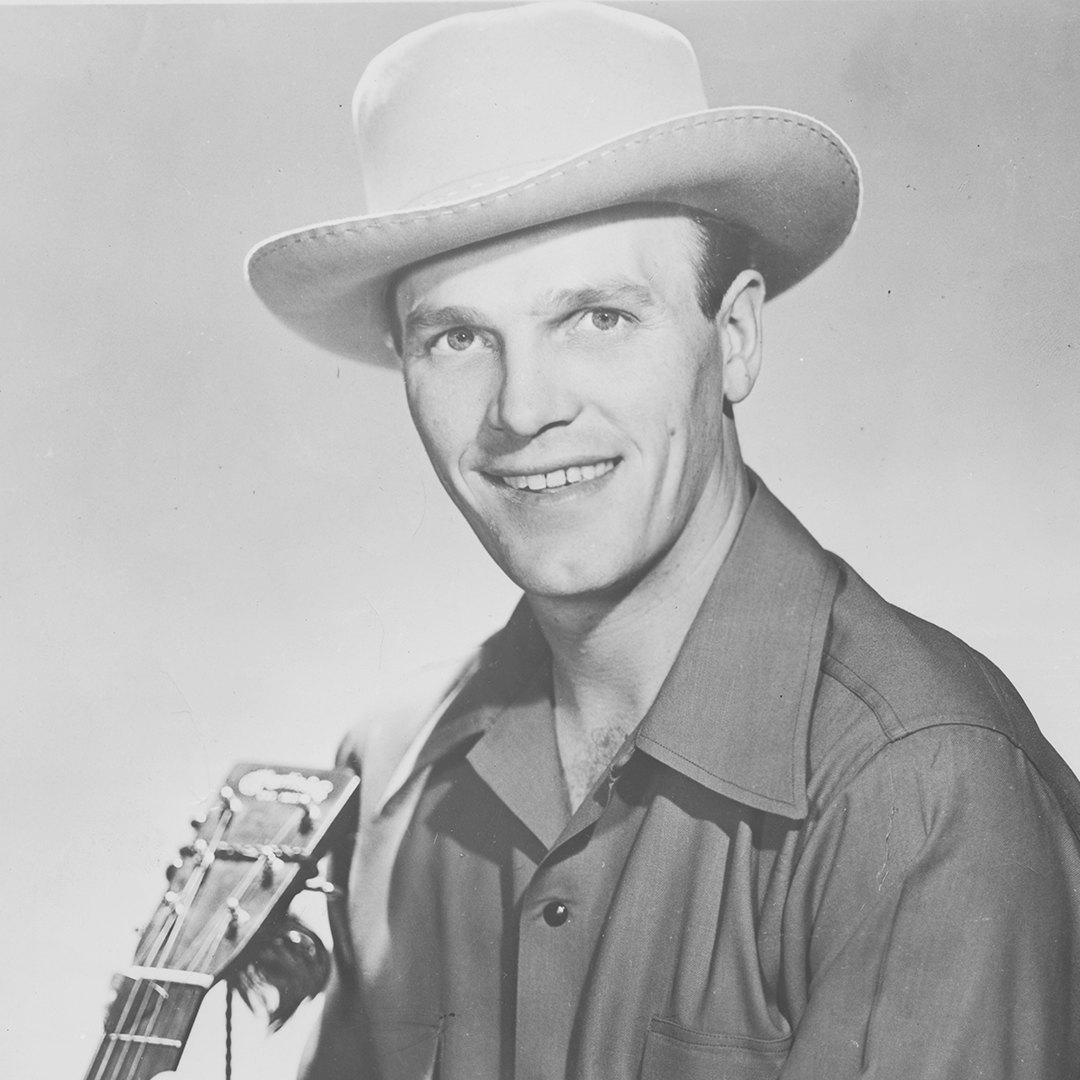Jim
Reeves

-
Inducted1967
-
Born
August 20, 1923
-
Died
July 31, 1964
-
Birthplace
Panola County, Texas
Smooth-singing Jim Reeves was an archetypal Nashville Sound vocalist who enjoyed many crossover pop hits. He was one of country music’s most distinctive and successful singers in the 1950s and 1960s, and his smooth, warm baritone was a major component of the sophisticated, pop-influenced Nashville Sound that emerged during the late 1950s and early 1960s and that boosted country music to new commercial heights while strengthening Nashville’s role as a music center.
Early Life and Career
James Travis Reeves was the youngest of nine children, and his older brothers were forced to leave school to help support the family after their father died, when Reeves was still a baby. Even as a boy, he was fascinated by music; by the time he was twelve he was singing and playing guitar at local dances and playing with a band on Shreveport, Louisiana, radio station KRMD.
After high school in Carthage, Texas, Reeves won a baseball scholarship to the University of Texas at Austin, quit to volunteer for military service in World War II, and became a welder after failing his physical exam. He continued to play minor-leagues baseball in several states while working as a salesman between seasons. By 1947, however, a leg injury ended his baseball career, so he landed announcer’s jobs on several East Texas radio stations, slots that allowed him to advertise personal appearances in the area.
Songs
00:00 / 00:00
00:00 / 00:00
00:00 / 00:00
Embracing the Nashville Sound
Reeves made his first commercial recording around 1949, for the Macy’s label in Houston, but his recording career began in earnest when he signed with Abbott Records in 1952. Early success with “Mexican Joe” helped him move up to the 50,000-watt KWKH in Shreveport, where he worked as an announcer and performer on the Louisiana Hayride. From there, Reeves graduated to the Grand Ole Opry, joining in October 1955 on the strength of early hits on RCA, for whom he began recording the previous May.
At first Reeves generally took a hard-country approach to his recordings, but “Four Walls,” a #1 country and #11 pop hit, marked his transition to pop-tinged love ballads sung in an intimate, low register, close to the microphone. In adopting this new vocal style, he continued a pattern set by Eddy Arnold and Red Foley and helped make crossover success a trend for country singers of the era. During 1957 and 1958, Reeves fronted his own pop radio show, fed from WSM to the ABC network. About this time, he began to reshape his image as well, shifting from cowboy outfits to sport coats and slacks and, on occasion, even tuxedos.
Videos
“Golden Memories”
recording session at RCA Studio B, 1963.
“My Lips Are Sealed”
Country Music Caravan, c. 1955
At first, Jim Reeves generally took a hard country approach to his recordings, but “Four Walls,” a #1 country and #11 pop hit, marked his transition to pop-tinged love ballads sung in an intimate, low register, close to the microphone.
Photos
-
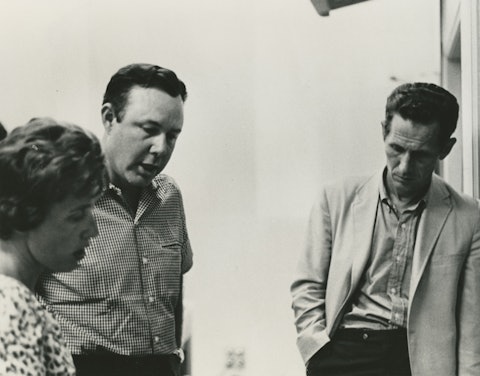
Jim Reeves (left) listening to playback in RCA Recording Studio with Chet Atkins, c. early 1960s.
-
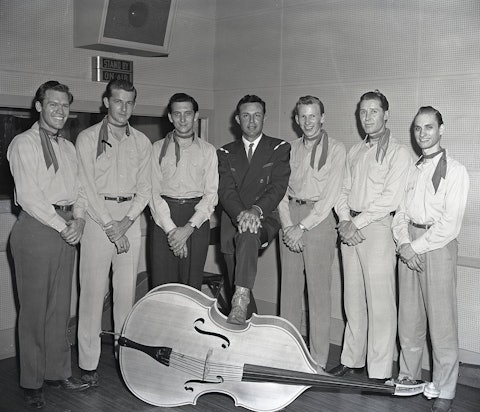
Jim Reeves and his band, probably at radio station WSM, in Nashville, 1955. Photo by Elmer Williams.
-
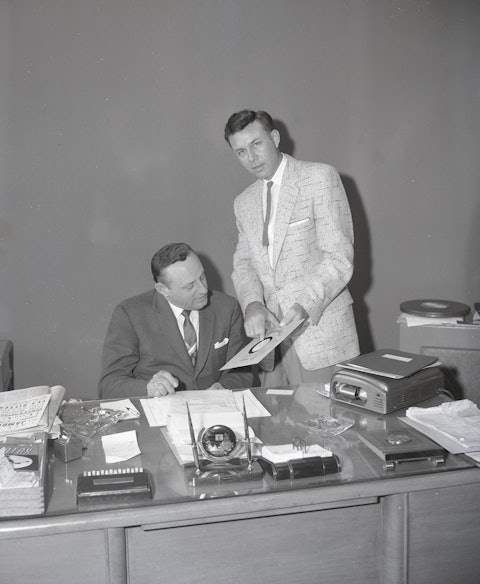
Jim Reeves and Jim Denny (seated), looking at a record Reeves is holding, c. mid- to late 1950s. Photo by Elmer Williams.
-
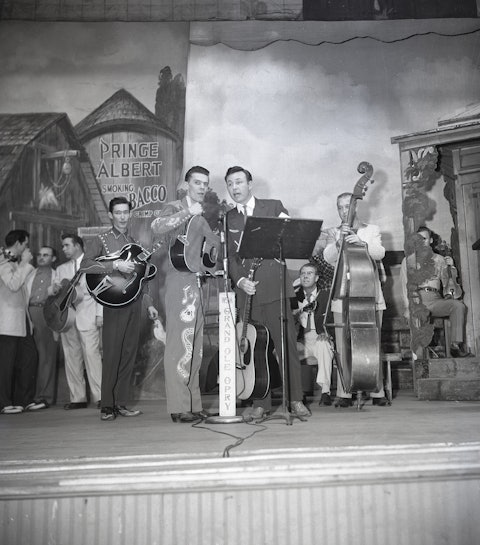
Jim Reeves (right) and Justin Tubb performing on the Grand Ole Opry, 1950s. Photo by Elmer Williams.
-
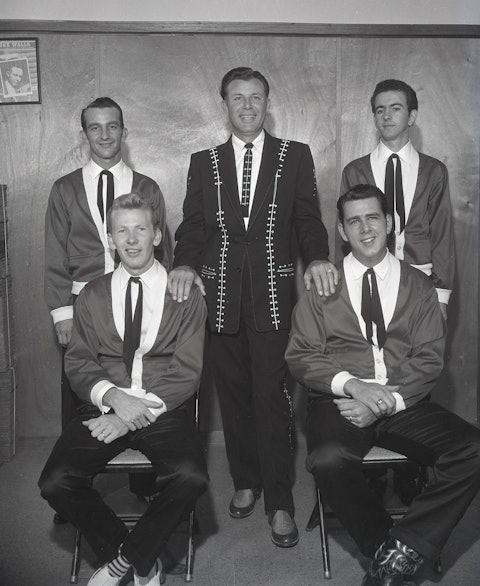
Jim Reeves (standing center) and his band, the Blue Boys, 1958. Photo by Elmer Williams.
-
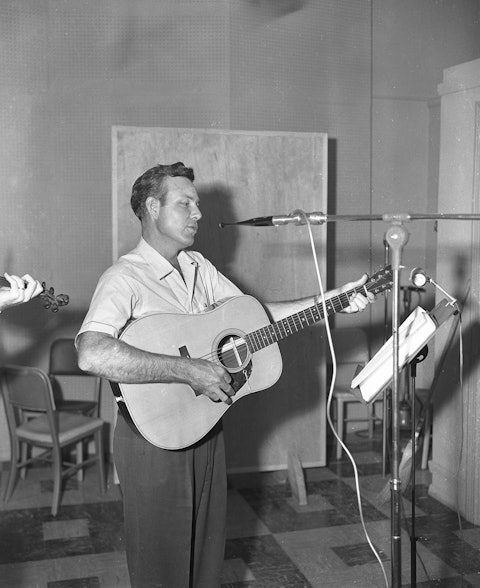
Jim Reeves recording, 1950s. Photo by Elmer Williams.
-
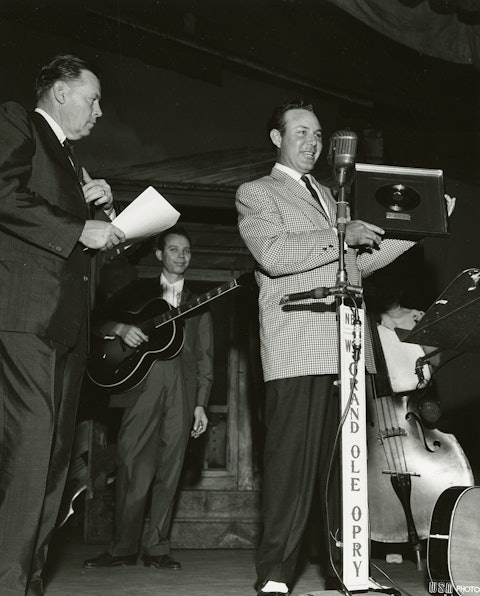
Jim Reeves on the stage of the Grand Ole Opry, c. 1960s. Photo by Les Leverett.
-
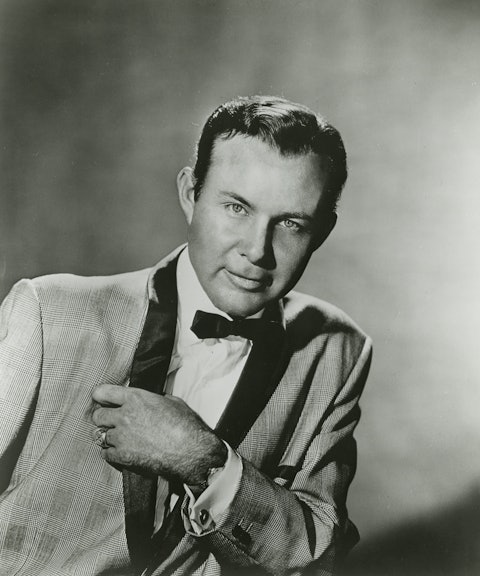
RCA Records publicity photo of Jim Reeves, c. 1960s.
-
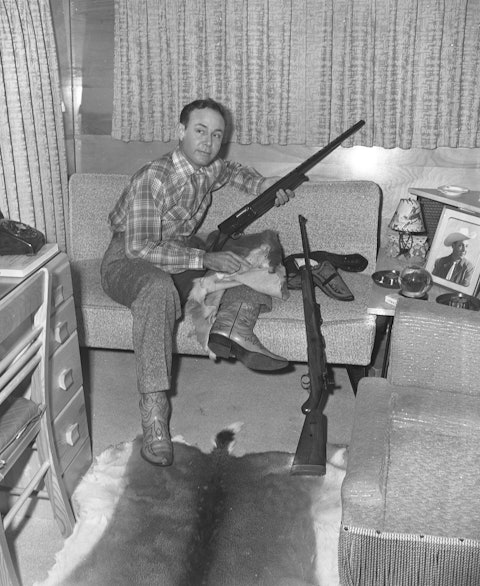
Jim Reeves with guns, evidently in his mobile home, c. mid- to late 1950s. Photo by Elmer Williams.
-
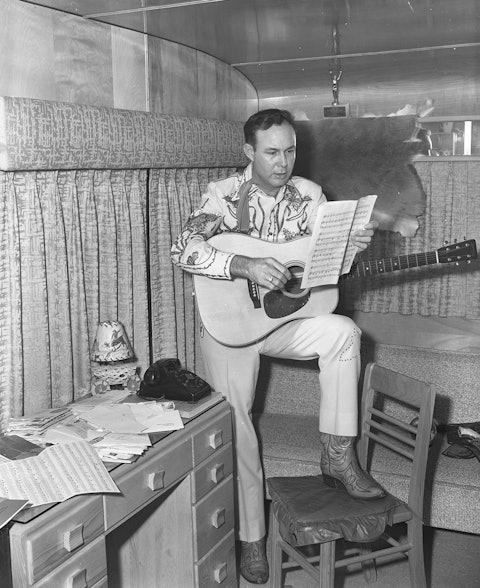
Jim Reeves, with guitar and lyric sheet, evidently in his mobile home, c. mid- to late 1950s. Photo by Elmer Williams.
Hit Records and International Tours
A demanding perfectionist in the recording studio, Reeves worked closely with RCA producer Chet Atkins in choosing material, and their efforts paid off. Hits like “Blue Boy,” “Billy Bayou,” “Home,” and “Am I Losing You” solidified his stardom while demonstrating his versatility. In 1959–1960 he scored his biggest hit, the million-selling “He’ll Have to Go,” which topped the country charts and climbed to #2 on the pop charts. As the Country Music Association began to push country-pop sounds in converting radio stations to country formats, Reeves became a natural with those stations that embraced the new Nashville Sound trend. Soon, he emerged as an international star, joining an RCA package tour to Europe in 1957 and making a 1962 tour to South Africa as well as later trips to England, Ireland, and Europe. Even if fans couldn’t understand the lyrics, one journalist wrote, “the resonant purr from the honeyed larynx of Jim Reeves has an almost hypnotic effect.”
Although Reeves was killed in a plane crash in 1964, his recordings have continued to sell long after his death. Posthumous hits helped him win election to the Country Music Hall of Fame in 1967, and he charted as late as 1983.
—John W. Rumble
Adapted from the Country Music Hall of Fame® and Museum’s Encyclopedia of Country Music, published by Oxford University Press

